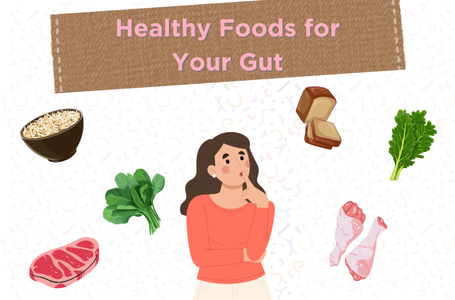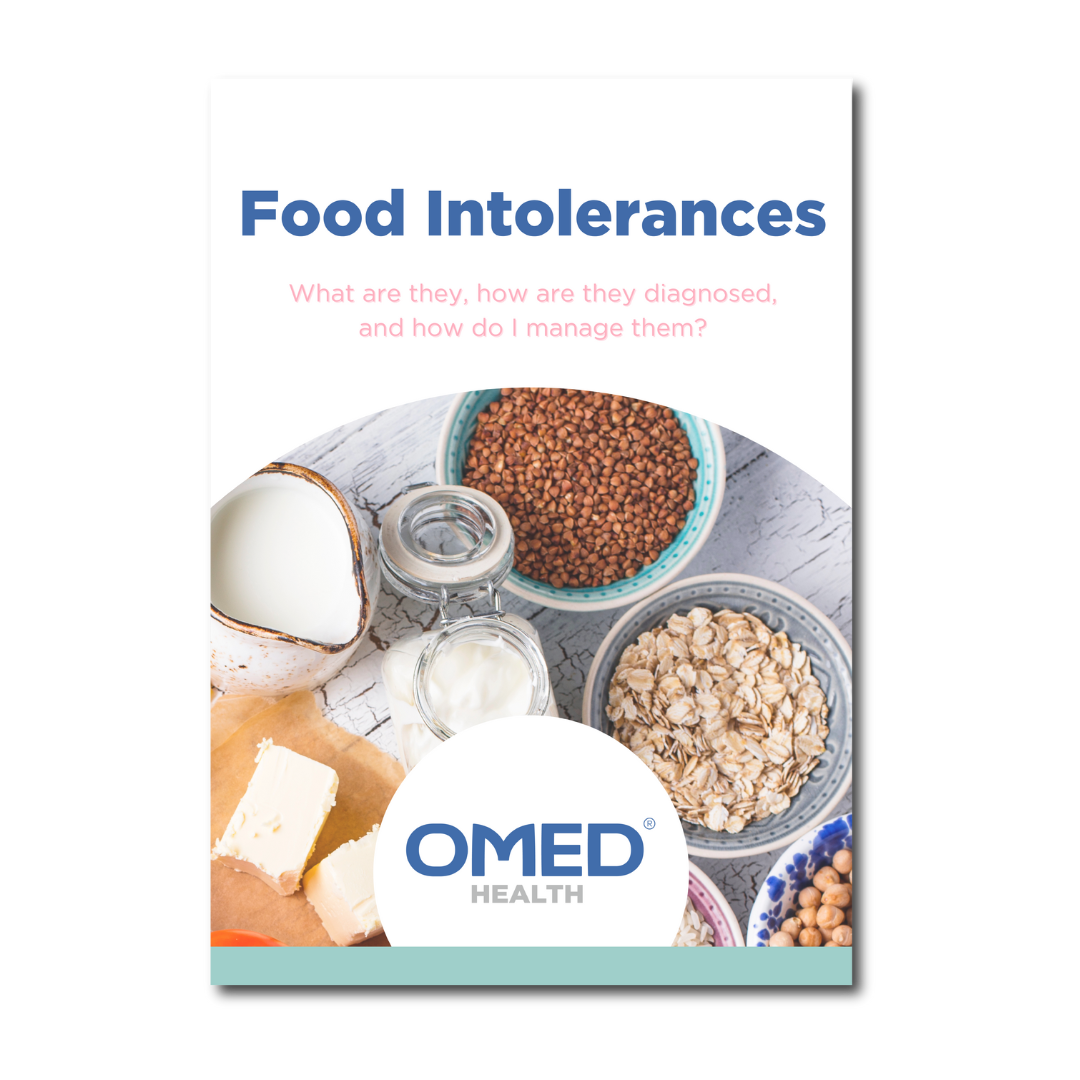Beware! Some of the seemingly harmless foods on your plate might be negatively impacting your gut, causing you to experience horrible symptoms. The food in our diet provides not only the necessary nutrients our body needs to function but also nutrients for the microbes in our gut, called the gut microbiome. Therefore, what we eat can alter the composition, and function of the gut microbiome, which could cause different symptoms such as cramps, bloating, and gas. Alterations in the gut microbiome can also play a part in more serious gut conditions, such as inflammatory bowel disease (IBD) (1). This therefore poses the question, ‘what are the foods good for digestion?’.
Our digestive system plays an important role in breaking down food and absorbing nutrients. Carbohydrates, proteins, and fats are the three main food groups that provide the body with energy. These food groups are all digested differently and therefore provide the human gut microbiome with different nutrients, which can have a positive or negative effect on the gut (1). For example, fructose is a FODMAP, a group of foods that are readily fermented by bacteria in the gut resulting in large amounts of gas and water being produced, meaning for some people it could cause very painful symptoms. Having a high FODMAP diet can cause digestive discomfort for some people, especially those with irritable bowel syndrome (IBS).
Processed foods can also be detrimental to gut health as they can lead to the production of harmful bacteria in the gut such as Enterobacteria, which has been found to cause inflammation in the gut and is related to the development of IBD (2).
Now you know what foods to be wary of, let’s discuss the foods good for digestion!
Probiotics:
Probiotics are one group of foods good for digestion. They contain microorganisms and promote a healthy gut when they are consumed. The main products that exist in your local supermarket are dairy-based, such as cheese, buttermilk, ice cream, and yogurt. There are also many non-dairy probiotics such as kefir and kimchi. The health benefits of these foods depend on which strain of probiotics it contains. Studies have shown that probiotics can improve your gut health by encouraging the growth of useful bacteria in the gut microbiome, as well as improving your immune response (3).
Prebiotics:
Prebiotics are foods that are high in fibre which promote the growth of beneficial bacteria in the gut microbiome. Vegetables, legumes, whole grains, and nuts are just a few examples. Prebiotic fiber cannot be broken down in the digestive system, but the bacteria in the gut microbiome can ferment the fiber to use it as a fuel source. This process produces molecules such as short chain fatty acids (SCFAs) that can suppress inflammation and reduce the risk of certain diseases, such as cardiovascular disease (4).
Gut health foods:
Here is a summary of foods good for digestion:
- Whole grains.
Choosing brown rice and bread over white can make a big difference to your gut. These whole grains provide lots of fiber, as well as added nutrients such as omega-3 fatty acids. Even though low-carbohydrate diets are promoted for weight loss, avoiding grains altogether can do more harm than good (5).
- Leafy greens.
Leafy greens such as spinach or kale are also great sources of fiber, as well as being packed full of vitamins. They also contain sugar called sulfoquinovose (SQ) which good gut bacteria can use as an energy source, helping you develop a healthy gut microbiome (6).
- Lean protein.
If you are suffering from IBS lean proteins are a good meat option for you – try avoiding foods that are rich in fat, such as fried foods (7).
- Low-fructose fruits.
If you are prone to gas and bloating, you may want to reduce your consumption of fructose. Fruits such as pears, mangos, and apples are high in fructose. Swap these fruits for berries and oranges, as these are low in fructose and less likely to cause you painful symptoms (8).
- Avocado.
Avocado is a superfood! It is packed full of fibre and nutrients which promotes healthy gut function. It’s also low in fructose! Avocados are also high in healthy fats, so it is recommend to eat them moderation (9).
Remember – everyone’s gut microbiome is different. It is important that you discuss with your healthcare professional if you are making big changes to your diet.
How OMED Health can help your gut microbiome.
We recognize that it is important for individuals to gain insight into the health of their gut microbiome and have an accessible way of monitoring what is going on inside their bodies. We have developed the OMED Health Breath Analyzer and App, set to launch soon. This at-home breath testing device and paired app is a solution that enables the monitoring of compounds in the breath, alongside the tracking of relevant lifestyle factors that may contribute to your discomfort – such as your diet. By analyzing this data, patients can access personalized treatment plans and ongoing monitoring, meaning you can make well-informed decisions about your gut health. Secure your priority access by joining the waitlist today.
References.
- Zhang P. Influence of Foods and Nutrition on the Gut Microbiome and Implications for Intestinal Health. Int J Mol Sci. 2022 Aug 24;23(17):9588. DOI: 10.3390/ijms23179588
- Cuevas-Sierra A, Milagro FI, Aranaz P, Martínez JA, Riezu-Boj JI. Gut Microbiota Differences According to Ultra-Processed Food Consumption in a Spanish Population. Nutrients. 2021 Aug 6;13(8):2710. DOI: 10.3390/nu13082710
- Kechagia M, Basoulis D, Konstantopoulou S, Dimitriadi D, Gyftopoulou K, Skarmoutsou N, et al. Health Benefits of Probiotics: A Review. Int Sch Res Not. 2013 Jan 2;2013:e481651. DOI: 10.5402/2013/481651
- Slavin J. Fiber and Prebiotics: Mechanisms and Health Benefits. Nutrients. 2013 Apr;5(4):1417–35. DOI: 10.3390/nu5041417
- 5 Foods to Improve Your Digestion [Internet]. 2021 [cited 2023 Nov 22]. Available from: https://www.hopkinsmedicine.org/health/wellness-and-prevention/5-foods-to-improve-your-digestion
- University of York [Internet]. [cited 2023 Nov 22]. Sweet discovery in leafy greens reveals how sulphur is used by living organisms. Available from: https://www.york.ac.uk/news-and-events/news/2016/research/spinach-sulphur-sugars/
- Madsen L, Myrmel LS, Fjære E, Liaset B, Kristiansen K. Links between Dietary Protein Sources, the Gut Microbiota, and Obesity. Front Physiol. 2017 Dec 19;8:1047. DOI: 10.3389/fphys.2017.01047
- Montrose DC, Nishiguchi R, Basu S, Staab HA, Zhou XK, Wang H, et al. Dietary Fructose Alters the Composition, Localization, and Metabolism of Gut Microbiota in Association With Worsening Colitis. Cell Mol Gastroenterol Hepatol. 2021 Jan 1;11(2):525–50. DOI: 10.1016/j.jcmgh.2020.09.008
- PhD KB. Avocado Consumption: Feeding your gut microbiota [Internet]. American Society for Nutrition. 2021 [cited 2023 Nov 22]. Available from: https://nutrition.org/avocado-consumption-feeding-your-gut-microbiota/

